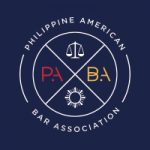For Immediate Release: September 21, 2017
For More Information, Contact:
Philippine American Bar Association:
Philip Nulud, philip.nulud@gmail.com
NAPABA Communications:
bschuster@napaba.org, 202-775-9555
PABA Joins NAPABA and 61 APA Bar Associations in Supreme Court Amicus Brief Challenging President’s Revised Muslim and Refugee Ban
WASHINGTON — The Philippine American Bar Association joins its affiliated national bar, the National Asian Pacific American Bar Association (NAPABA), and 61 national and local Asian Pacific American bar associations in filing an amicus brief in the consolidated cases, Trump v. State of Hawai`i and Trump v. International Refugee Assistance Project, before the U.S. Supreme Court. Together these Asian Pacific American bar associations urges the Court to support the injunction of President Trump’s March 6, 2017, revised executive order barring refugees and individuals from six Muslim-majority countries from entering the United States.
“The significant number of national, local, and state Asian Pacific American bar associations from around the country that joined our brief is a testament to the consensus in the legal community that the order is discriminatory and unlawful. The National Asian Pacific American Bar Association stands by its mission and policy resolutions and is proud to have challenged the revised executive order from the initial lawsuit brought in Hawai`i all the way to the Supreme Court,” said NAPABA President Cyndie M. Chang. “We are a diverse legal community that values inclusion. As a community, we have experienced the harms of exclusionary laws and we will continue to oppose this anti-Muslim and anti-immigrant order. We urge the Supreme Court to strike it down.”
“PABA is proud to stand with our sister Asian Pacific American bar associations from around the country in challenging the President’s revised Muslim and refugee ban,” said PABA President Philip Nulud. “This is particularly poignant to the Filipino-American community as it is similar to what took place in the 1930s when Filipinos were the subject of racial animus. At the time, Filipinos were allowed to migrate to the United States because the Philippines was under U.S. jurisdiction. However, they were seen to present an economic threat and to ‘upset the existing racial hierarchy between whites and nonwhites.” As a result, the Philippine Independence Act passed in 1934 granting independence to the Philippines and changing the status of Filipinos from U.S. nationals to ‘aliens,’ which made them subject to deportation and repatriation. PABA respectfully requests that the Supreme Court take note of those dark times in our nation’s history and urges that it strike down this order to help prevent history from repeating itself.”
The Trump Administration’s appeal arises from two challenges to the revised executive order. NAPABA filed an amicus brief opposing the executive order in the first challenge, State of Hawai`i v. Trump. Judge Derrick K. Watson of the U.S. District Court of Hawaii issued an injunction blocking the visa and refugee restrictions. Judge Theodore Chuang of the U.S. District Court of Maryland enjoined the six-country visa ban in International Refugee Assistance Project v. Trump.
Both the U.S. Court of Appeals for the Ninth Circuit, in a per curiam ruling, and the U.S. Court of Appeals for the Fourth Circuit, in a 10-3 en banc ruling, maintained respective lower courts’ blocks on the revised executive order. NAPABA filed amicus briefs, endorsed by 43 Asian Pacific American bar associations, in both circuits urging them to uphold the lower court injunctions.
The Supreme Court amicus brief describes decades of statutory exclusion of citizens of Asian and Pacific Island countries under early U.S. immigration law, including the Chinese Exclusion Act of 1882 — the first federal law to ban a group of people on the basis of their race. The Civil Rights Era marked a dramatic turning point that saw Congress dismantle nationality-based discrimination with the Immigration and Nationality Act of 1965. The brief explains that presidential discretion in the area of immigration and refugee admission, while broad, is limited by statute. NAPABA and the Philippine American Bar Association argue that President Trump’s revised order, with its anti-Muslim underpinnings, violates the unambiguous prohibition on discrimination established by Congress.
NAPABA recognizes lead pro bono counsel, James W. Kim, a NAPABA member and partner at McDermott Will & Emery LLP, in Washington, D.C., Mr. Kim’s team (including Andrew Genz, Philip Levine, Llewelyn Engel, and Matthew Girgenti), and NAPABA Amicus Committee co-chairs, Professor Radha Pathak of Whittier Law School and Albert Giang, a partner at Boies, Schiller & Flexner LLP in Los Angeles, for their leadership drafting the brief, which also involved the efforts of NAPABA staffers.
The Supreme Court will hear the case on October 10, 2017, in Washington D.C.
A total of 63 bar associations submitted this joint amicus brief before the Supreme Court:
- National Asian Pacific American Bar Association
- Arizona Asian American Bar Association
- Asian American Bar Association of Greater Chicago
- Asian American Bar Association of Houston
- Asian American Bar Association of New York
- Asian American Bar Association of Ohio
- Asian American Bar Association of the Greater Bay Area
- Asian American Criminal Trial Lawyers Association
- Asian American Lawyers Association of Massachusetts
- Asian Bar Association of Washington
- Asian Pacific American Bar Association of Central Ohio
- Asian Pacific American Bar Association of Colorado
- Asian Pacific American Bar Association of Indiana
- Asian Pacific American Bar Association of Los Angeles County
- Asian Pacific American Bar Association of Maryland
- Asian Pacific American Bar Association of Pennsylvania
- Asian Pacific American Bar Association of Silicon Valley
- Asian Pacific American Bar Association of Solano County
- Asian Pacific American Bar Association of South Florida
- Asian Pacific American Bar Association of Tampa Bay
- Asian Pacific American Bar Association of Virginia
- Asian Pacific American Lawyers Association of New Jersey
- Asian Pacific American Women Lawyers Alliance
- Asian/Pacific Bar Association of Sacramento
- Austin Asian American Bar Association
- Chinese American Bar Association of Greater Chicago
- Connecticut Asian Pacific American Bar Association
- Federation of Asian Canadian Lawyers
- Filipino American Lawyers Association of Chicago
- Filipino American Lawyers Association of New York
- Filipino American Lawyers Association of Sacramento
- Filipino American Lawyers of San Diego
- Filipino Bar Association of Northern California
- Filipino Lawyers of Washington
- Japanese American Bar Association
- Korean American Bar Association of Chicago
- Korean American Bar Association of D.C.
- Korean American Bar Association of Northern California
- Korean American Bar Association of Southern California
- Korean American Bar Association of Washington
- Korean American Lawyers Association of Greater New York
- Louisiana Asian Pacific American Bar Association
- Michigan Asian Pacific American Bar Association
- Minnesota Asian Pacific American Bar Association
- Missouri Asian American Bar Association
- NAPABA – Hawaii
- National Filipino American Lawyers Association
- New Jersey Muslim Lawyers Association
- Orange County Asian American Bar Association
- Orange County Korean American Bar Association
- Oregon Filipino American Lawyers Association
- Pan Asian Lawyers of San Diego
- Philippine American Bar Association
- South Asian Bar Association – San Diego
- South Asian Bar Association of Chicago
- South Asian Bar Association of Northern California
- South Asian Bar Association of Southern California
- South Asian Bar Association of Washington
- Southern California Chinese Lawyers Association
- Taiwanese American Lawyers Association
- Thai American Bar Association
- Vietnamese American Bar Association of Northern California (VABANC)
- Vietnamese-American Bar Association of Washington
—-
Read the amicus brief here.
Read NAPABA’s amicus briefs in the district court in State of Hawai‘i v. Trump, in the Ninth Circuit Case, State of Hawai‘i v. Trump, and in the Fourth Circuit case, International Refugee Assistance Project v. Trump.
For more information, the media may contact Brett Schuster, NAPABA communications manager, at 202-775-9555 or bschuster@napaba.org.
The National Asian Pacific American Bar Association (NAPABA) is the national association of Asian Pacific American attorneys, judges, law professors, and law students. NAPABA represents the interests of almost 50,000 attorneys and over 80 national, state, and local Asian Pacific American bar associations. Its members include solo practitioners, large firm lawyers, corporate counsel, legal services and non-profit attorneys, and lawyers serving at all levels of government.
NAPABA continues to be a leader in addressing civil rights issues confronting Asian Pacific American communities. Through its national network of committees and affiliates, NAPABA provides a strong voice for increased diversity of the federal and state judiciaries, advocates for equal opportunity in the workplace, works to eliminate hate crimes and anti-immigrant sentiment, and promotes the professional development of people of color in the legal profession.
To learn more about NAPABA, visit www.napaba.org, like us on Facebook, and follow us on Twitter (@NAPABA).
PABA is the oldest and largest local group of Filipino-American attorneys. It was formed to address legal issues affecting the Filipino-American community and to support the Filipino-American lawyers and law students in Southern California. PABA sponsors community legal clinics and provides pro bono legal services. PABA also provides continuing legal education seminars and professional development opportunities for its members, and assists Filipino-American law students through mentorship programs and scholarships.
To learn more about PABA, visit www.pabala.org, like us on Facebook and follow us on Instagram (@pabalawyers)





